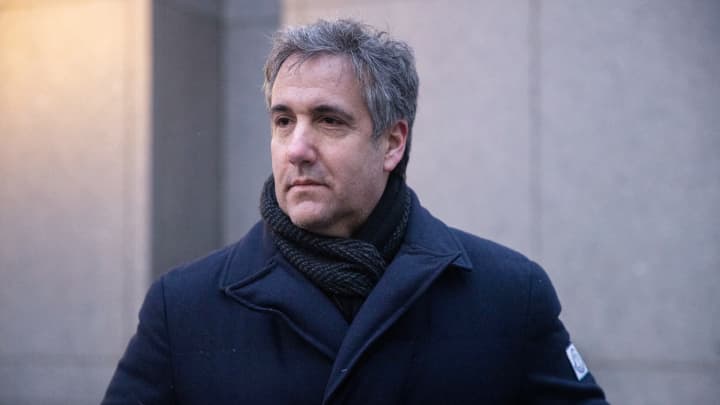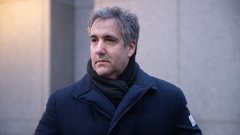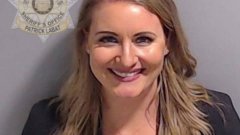
, former personal lawyer and fixer for , testified Tuesday that the former president directed him to falsely inflate the values of his assets to give him the appearance of a higher net worth.
Trump would look at the total assets in his financial statements and say, "I'm actually not worth $4.5 billion. I am really worth more like $6 billion," Cohen alleged in the $250 million of Trump and his company.
Cohen testified that he and another Trump Organization executive would then work to "reverse engineer" higher values for assets listed in those financial documents in order to reach "whatever number he told us."
He delivered the testimony just feet from Trump, who was listening in the courtroom in Manhattan Supreme Court. Cohen, who once said he would "take a bullet" for Trump, is now a star witness in multiple civil and criminal cases against his former boss.
Cohen told CNBC prior to his court appearance that Trump's presence "will not affect me either way."
Trump may hope otherwise. Before entering the courtroom, he ripped Cohen as a "proven liar" who is "trying to get a better deal for himself."
Trump continued to attack Cohen after the trial adjourned for the day, calling his once-close aide a "felon" and a "disgrace" who is "totally discredited already."
Trump said he will be in court again Wednesday, as Cohen's testimony continues.
Cohen told reporters outside the courtroom Tuesday morning that his participation in the trial was not about his rivalry with Trump. "This is about accountability, plain and simple," he said.
Indeed, Cohen's court appearance offers more than just the chance of a clash between the two men, whose bitter falling-out took place largely in public view during Trump's presidency. Cohen's in 2019 about his former boss's business practices is what spurred New York Attorney General Letitia James to open an investigation in the first place.
The lawsuit that emerged from that probe accuses Trump, his two adult sons, the Trump Organization and top executives of fraudulently inflating the values of real estate properties and other assets over a decade in order to get tax benefits and better loan terms.
James seeks around $250 million in damages, and she wants to bar Trump and his co-defendants from running a business in New York.
Judge Arthur Engoron, who will deliver verdicts in the no-jury trial, has already found Trump liable for fraud and ordered the cancellation of the defendants' New York business certificates. The trial, which is expected to stretch into late December, will resolve James' six remaining claims.
Shortly after taking the stand, Cohen was prompted to recount the crimes he pleaded guilty to in 2018, including campaign finance violations, tax evasion and lying to Congress. Cohen was sentenced to three years in prison, though he served some of that time in home confinement.
Cohen has previously accused Trump of directing some of those crimes. He testified Tuesday that his lies to Congress about plans to obtain a property in Moscow were done "at the direction and benefit of Mr. Trump," according to NBC News' notes from the hearing.
Cohen said he went to work for Trump in 2007 as his executive vice president and special counsel.
"I reported to Donald Trump and only Donald Trump," Cohen said, describing his work as that of a personal attorney.
Cohen was asked to examine a document that he described as Trump's statement of financial condition for June 2011. Cohen testified that he was asked to increase the asset totals listed on Trump's financial forms based on a number that Trump "arbitrarily" selected.
Cohen said that he and former Trump Organization Chief Financial Officer Allen Weisselberg, another defendant in the case, were predominantly responsible for working to "reverse engineer" the values of different asset classes to reach the number Trump wanted.
During a brief pause in the questioning, Cohen appeared to turn and look directly at Trump.
"Heck of a reunion," Cohen told reporters during a break in the proceedings.
Trump, who has been in court only on certain days during the trial, said during that break that Cohen's record "is a horrible one." He added: "We're not worried at all about his testimony."
"He's not a credible witness," Trump said, and "so far he hasn't said anything that matters."
Cohen delved into further detail after the lunch break.
Trump, when shown his financial statements, "would look at the total assets and say, 'I'm actually not worth $4.5 billion. I am really worth more like $6 billion,'" Cohen testified.
"He would ask Allen and I to go back to the office and return with the desired goal," Cohen said.
He said that he would read articles or look online to find purportedly comparable apartments with higher prices per square foot, and then apply those inflated numbers to units in Trump's assets.
Trump was in court for two days last week, when Cohen was first expected to be called to testify. But Cohen's appearance was delayed due to what Cohen said was a pre-existing medical condition.
Trump, who is the frontrunner for the 2024 Republican presidential nomination, has denied all wrongdoing in the case. At the courthouse and on social media, he has repeatedly criticized James, the judge and the proceedings in general, claiming he is the victim of a politically motivated witch hunt.
Engoron imposed a narrow gag order on Trump earlier this month, after Trump attacked the judge's law clerk. The judge last week accused Trump of violating that gag order, imposing a $5,000 fine on Trump and warning him that repeated violations could lead to his imprisonment.
The gag order prohibits Trump from making public statements about the judge's staff. But he is currently not barred from attacking others involved in the case — including Cohen.
The lawyer is also a star witness in the Manhattan district attorney's active criminal case accusing Trump of falsifying business records related to hush-money payments made shortly before the 2016 election.
Cohen in 2018 pleaded guilty to arranging those secret payments to two women, porn star Stormy Daniels and Playboy model Karen McDougal, who say they had extramarital affairs with Trump years earlier. Trump has denied the alleged trysts and pleaded not guilty in the case brought by Manhattan District Attorney Alvin Bragg.
Cohen was sentenced to in prison for those payments, which he says were made at Trump's direction to try to influence the 2016 presidential election, and other crimes including tax evasion.
He was furloughed to home confinement after more than a year behind bars, owing to a coronavirus-related prison policy. But he was taken back into custody for several weeks after refusing to agree not to publish a book for the remainder of his sentence. A federal judge ruled that that condition was retaliatory.
Cohen's tell-all memoir, "Disloyal," was published in September 2020.
Don't miss these CNBC PRO stories:




